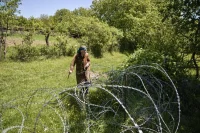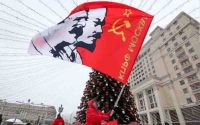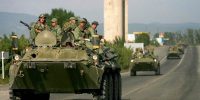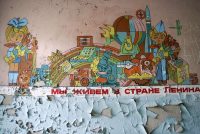
La larga agonía de la Unión Soviética: identidades locales, conflictos globales
En el verano de 2014, en un campamento de Rostov del Don (Rusia) repleto de refugiados procedentes de los territorios separatistas del Donbás, una abuela mecía a un bebé mientras conversaba con esta periodista: “Ucrania no nos deja hablar en nuestra lengua”, decía, en ruso. Poco a poco, sin embargo, la mujer se pasó al ucranio y en este idioma repetía el mismo mensaje: “No nos dejan usar nuestra lengua, no nos dejan…”. Aquella abuela, que pasaba fluidamente de un idioma eslavo a otro sin advertirlo siquiera, evidenciaba cuán movedizas podían llegar a ser las identidades en los espacios de la antigua Unión Soviética varias décadas después de su desaparición.… Seguir leyendo »









